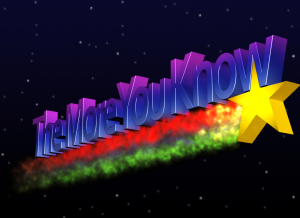Ever since the inception of Safebraking.com, the website has warned of the costs of using inferior friction materials.
Today, we are in a fight against replacement brake pads that put profit ahead of safety.
The brake repair market is starting to become dominated by the “good enough” mentality. Good enough to an individual is just being able to stop in a “reasonable” distance at normal driving and last for 10,000 miles. However, when asked to perform an emergency stop or a series of hard stops, the vehicle afflicted can become unsafe with longer stops and a low pedal. You may rationalize that your customer may never perform such severe maneuvers, but how can you be sure?
Are you sure that little old lady does not drive with two feet? Can you be sure that that a truck will never tow a boat? Is really worth installing cheap brake pads in order to be able to advertise and hopefully make profit on a $99 brake special?
What standards should you have when selecting replacement brake pads? Try them for yourself! Set aside some time when the shop is not busy or on a weekend to try out the brands of brake pads you install for your customers. Perform at least four emergency stops from 55 mph to a dead stop back to back. Let your right foot be the judge. A series of hard stops will simulate the punishment a pad might have on a major metropolitan freeway during extreme stop and go traffic. Please, find a road or parking lot with very little traffic and use common sense when trying them out.
Clean the surface of the rotor between pad changes to remove friction material deposited on the rotor. Also, perform the brake pad manufacturer’s recommended break-in procedure before performing any hard stops. Change the pads and break them in just as you would do for a customer.
Inferior brake pads will start to fade and pedal travel will be almost to the floor. Or look at the pedal travel data on the 2nd hot stop of the FMVSS (Federal Motor Vehicle Safety Standards) Test. It is the friction level that provides the deceleration torque to stop the car, but it is the pedal travel or fluid displacement that actuates the brake and is required for proper ABS functionality. If the fluid displacement increases to much, it can dramatically inhibit the response of the anti-lock brake system.
Additionally, inferior pads will start to smell worse than the average burnt clutch. Some inferior brake pads may have a very acrid or pungent aroma due to the use of cheap glues and fillers. Also, the smell can be attributed to coatings and paints that may be burning.
Some metals and their derivatives can cause cancer and birth defects in humans. There is a current move in California to significantly limit or eliminate the use of copper in brake pads. This is expected to be adopted nationwide in the future. The question remains as to who will be responsible for disposal of what is in the field and when? Also, antimony is banned by Proposition 65 in California. Violations of Proposition 65 may carry prison sentences. Environmental issues and carcinogen class action law suits can run into the hundreds of millions of dollars and place even the largest of companies into financial disasters. These liabilities are extremely powerful as they reach into the past before protective legislation.
Original post by Andrew Markel forBrake and Front End Magazine.
